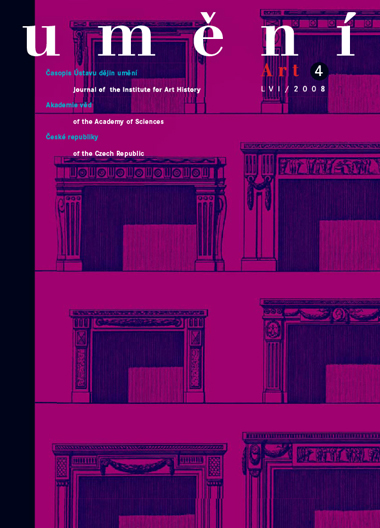Radmila Veselá
Bedřich Feuerstein: Dopisy Ógystovi
We probably never would have been able to properly appreciate the figure of the architect and scenographer Bedřich Feuerstein without his surviving correspondence. The reason is that he spent a substantial part of his creative years abroad. Some of his correspondence with friends has already been published, mainly his letters to Josef Havlíček, written during his stays in France and to less an extent Japan, and that material is now enriched with the addition of his letters to August Perret from Prague, Japan and the United States in 1924-1928, which were discovered in the collection of the Perret brothers in the IFA, Archives d'architecture du XXe siecle in Paris. Feuerstein's manner of addressing August Perret, the head of the Perret brothers' studio, was in a tone acknowledging him as his teacher or 'boss'. At Perret's office Feuerstein contributed significantly, for example, to the famous temporary theatre at the Exhibition of Decorative Arts in 1925. He nevertheless left after just under two years (1924-1925) to seek more independent work in Japan. The letters he wrote to his former employer from Japan and from a shorter stay in the USA testify to the friendly relationship, respect and esteem that Feuerstein developed towards August Perret. They also of course provide evidence of the considerable contribution this talented architect made to the work of Antonín Raymond's office, for which he worked. In this regard we can at least mention St Luke's International Hospital, the largest hospital of its day in Tokyo. The simplicity, delicacy and sophistication of Japanese culture and life style so enchanted Feuerstein that he acquired the intention to open his own office. He began working with Japanese architects and participating in local competitions. However, other correspondence tells us that owing to improper behaviour by Antonín Raymond, Feuerstein decided to return to his own country, where, despite his wealth of experience abroad, he never obtained any very significant contracts. This new correspondence is accompanied by Feuerstein's scenographic sketches (also from the above-named Paris Archives), which can be described as applications of Prague scenes from the start of the 1920s to the three-piece stage of the exhibition theatre.
Full-text in the Digital Library of the Czech Academy of Sciences:
https://kramerius.lib.cas.cz/uuid/uuid:ff95329a-64cb-aee6-bb17-5c0a960c9ab2
< back

